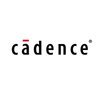


i
Micron
Technology
Work with us
![]()
Filter interviews by
Micron Technology Interview Questions and Answers
49 Interview questions
Networking basics involve understanding how devices communicate, protocols, IP addressing, and network topologies.
Networking involves connecting computers and devices to share resources.
Protocols like TCP/IP govern how data is transmitted over networks.
IP addressing assigns unique identifiers to devices for communication.
Common network topologies include star, ring, and mesh configurations.
Routers and switches are...
To fetch the 3rd highest salary, SQL queries can utilize ranking functions or subqueries for effective retrieval.
Using Subquery: A common method is to use a subquery to select distinct salaries and then limit the results. Example: SELECT DISTINCT salary FROM employees ORDER BY salary DESC LIMIT 1 OFFSET 2;
Using DENSE_RANK: SQL's DENSE_RANK function can rank salaries and allow for easy retrieval of the 3rd highest....
Design a software timer library for multiple clients with 1us granularity support.
Use a priority queue to manage timers based on expiration time.
Implement a callback mechanism for clients to receive notifications.
Support multiple timer types: one-shot, periodic, and delayed timers.
Ensure thread safety for concurrent access from multiple clients.
Provide an API for clients to create, cancel, and query timers.
A transistor is a semiconductor device used to amplify or switch electronic signals and electrical power.
Transistors are made of semiconductor materials like silicon or germanium.
They have three terminals: emitter, base, and collector.
Transistors can function as amplifiers, increasing signal strength.
They are essential in digital circuits, acting as switches in logic gates.
Examples include bipolar junction transis...
CMOS inverter is a type of digital logic gate that implements logical NOT operation.
CMOS inverter consists of a PMOS transistor connected in series with an NMOS transistor.
When input is high, PMOS conducts and NMOS is off, output is low.
When input is low, NMOS conducts and PMOS is off, output is high.
CMOS inverters are widely used in digital circuits for logic operations.
Example: Inverter gate in a CMOS technology...
Calculate the minimum path sum from top to bottom in a pyramid structure of numbers.
Use dynamic programming to store minimum sums at each level.
Start from the second last row and move upwards, updating each element.
Example: For pyramid [[2], [3, 4], [6, 5, 7], [4, 1, 8, 3]], the min path is 11 (2 -> 3 -> 5 -> 1).
The final result will be the top element after processing all rows.
Adaboost is a machine learning algorithm that combines multiple weak learners to create a strong learner.
Adaboost stands for Adaptive Boosting.
It works by adjusting the weights of incorrectly classified instances so that subsequent weak learners focus more on them.
The final prediction is made by combining the predictions of all the weak learners, weighted by their accuracy.
Example: Adaboost is commonly used in fac...
Printing a binary tree in different orders
Use inorder traversal to print the binary tree in ascending order
Use preorder traversal to print the binary tree in root-left-right order
Use postorder traversal to print the binary tree in left-right-root order
Armstrong algorithm is used to find Armstrong numbers in a given range.
Iterate through the numbers in the given range
Calculate the sum of cubes of each digit in the number
Check if the sum is equal to the original number
Normalization is the process of organizing data in a database to reduce redundancy and improve data integrity.
Normalization is used to eliminate data redundancy by breaking up tables into smaller, related tables.
It helps in reducing data anomalies such as insertion, update, and deletion anomalies.
Normalization is achieved through a series of stages called normal forms, with the most common being First Normal Form ...
Micron Technology Interview Experiences
77 interviews found
I applied via Campus Placement
1 hour
aptitude test
brain teaser type questions
(2 Questions)
- Q1. What is transistor?
- Ans.
A transistor is a semiconductor device used to amplify or switch electronic signals and electrical power.
Transistors are made of semiconductor materials like silicon or germanium.
They have three terminals: emitter, base, and collector.
Transistors can function as amplifiers, increasing signal strength.
They are essential in digital circuits, acting as switches in logic gates.
Examples include bipolar junction transistors ...
- Q2. What is BJT? where it is used?
I applied via Naukri.com and was interviewed in Sep 2024. There were 2 interview rounds.
No question I am remembering
(5 Questions)
- Q1. C programming question
- Q2. VLSI design questions
- Q3. Setup time analysis
- Q4. Hold time analysis
- Q5. Test patter generation
I appeared for an interview in May 2025, where I was asked the following questions.
- Q1. Explain some of the projects in depth which you did in previous company?
- Ans.
Led a team to develop a scalable cloud-based application for real-time data analytics in the finance sector.
Designed a microservices architecture to enhance scalability and maintainability.
Implemented CI/CD pipelines using Jenkins and Docker for automated testing and deployment.
Utilized AWS services like Lambda and S3 for serverless computing and data storage.
Collaborated with cross-functional teams to gather requireme...
- Q2. Situational based questions, for checking problem solving skills as per job description and your resume
I appeared for an interview in May 2025, where I was asked the following questions.
- Q1. DSA question on stacks
- Q2. DSA questions on linked lists
- Q3. Introduction on where you are from
- Q4. Friendly chat on the location
- Q5. Behavioural questions on certain situations
I applied via Campus Placement
Nearly 90 questions. 1.30 hr.
(2 Questions)
- Q1. Explain CMOS inverter?
- Ans.
CMOS inverter is a type of digital logic gate that implements logical NOT operation.
CMOS inverter consists of a PMOS transistor connected in series with an NMOS transistor.
When input is high, PMOS conducts and NMOS is off, output is low.
When input is low, NMOS conducts and PMOS is off, output is high.
CMOS inverters are widely used in digital circuits for logic operations.
Example: Inverter gate in a CMOS technology-base...
- Q2. Coding question based on min distance from top to bottom in a pyramid.
- Ans.
Calculate the minimum path sum from top to bottom in a pyramid structure of numbers.
Use dynamic programming to store minimum sums at each level.
Start from the second last row and move upwards, updating each element.
Example: For pyramid [[2], [3, 4], [6, 5, 7], [4, 1, 8, 3]], the min path is 11 (2 -> 3 -> 5 -> 1).
The final result will be the top element after processing all rows.
(3 Questions)
- Q1. Very Easy sql questions
- Q2. Very eeasy basic python question
- Q3. Arey bhai access karne de
I applied via Campus Placement and was interviewed in Aug 2024. There were 3 interview rounds.
Online assesment aptitude, 3 SQL questions, 2 easy DSA coding questions.
2d square grid traversal
(1 Question)
- Q1. SQL only Window functions, case switch statements, remove duplicate from table, aggregate functions If you are good at python plus points If you have basic idea/previous work experience with GCP you can ...
(1 Question)
- Q1. Goals, where do see your self in 4 years(say that you will work at micron for a long time, don't say shit like I want to pursue higher studies) What does success mean to you
I applied via Naukri.com and was interviewed in May 2024. There was 1 interview round.
(4 Questions)
- Q1. Write a spark program to find the word with maximum length in a given string
- Ans.
Use Spark program to find word with maximum length in a given string
Split the string into words using space as delimiter
Map each word to its length
Find the word with maximum length using reduce operation
- Q2. Write an sql query to change rows into columns and vice versa
- Ans.
Use SQL pivot function to change rows into columns and vice versa
Use the PIVOT function in SQL to transform rows into columns
Use the UNPIVOT function in SQL to transform columns into rows
Example: SELECT * FROM table_name PIVOT (SUM(value) FOR column_name IN (value1, value2, value3))
Example: SELECT * FROM table_name UNPIVOT (value FOR column_name IN (value1, value2, value3))
- Q3. Write an sql query to fetch duplicate rows in a table
- Ans.
SQL query to fetch duplicate rows in a table
Use GROUP BY and HAVING clause to identify duplicate rows
Select columns to check for duplicates
Example: SELECT column1, column2, COUNT(*) FROM table_name GROUP BY column1, column2 HAVING COUNT(*) > 1;
- Q4. Diff between repartition and colaesce, clustering and partitioning in bq
- Ans.
Repartition increases or decreases the number of partitions in a DataFrame, while coalesce only decreases the number of partitions. Clustering is used for organizing data within a partition, while partitioning is dividing data into logical units.
Repartition increases or decreases the number of partitions in a DataFrame, which can be useful for parallelism and performance optimization.
Coalesce only decreases the number ...
Interview Preparation Tips
- Spark
- SQL
- Python
- Google Cloud
Skills evaluated in this interview
I appeared for an interview in Mar 2025, where I was asked the following questions.
- Q1. Design SW timer library that handles multiple clients and HW supports 1us granularity.
- Ans.
Design a software timer library for multiple clients with 1us granularity support.
Use a priority queue to manage timers based on expiration time.
Implement a callback mechanism for clients to receive notifications.
Support multiple timer types: one-shot, periodic, and delayed timers.
Ensure thread safety for concurrent access from multiple clients.
Provide an API for clients to create, cancel, and query timers.
- Q2. Sliding window pattern questions.
I applied via Campus Placement and was interviewed in May 2024. There was 1 interview round.
(4 Questions)
- Q1. Basic concepts about OOPs and asked to code examples of polymorphism
- Q2. Asked to write down SQL queries based on scenario
- Q3. Discussion on docker and frontend.
- Q4. My interview went nice. I nearly got all answers. But my resume was more OS related and it didn't matched with their requirements
Top trending discussions






Micron Technology Interview FAQs
Some of the top questions asked at the Micron Technology interview -
The duration of Micron Technology interview process can vary, but typically it takes about less than 2 weeks to complete.
Tell us how to improve this page.
Micron Technology Interviews By Designations
- Micron Technology Senior Engineer Interview Questions
- Micron Technology Software Engineer Interview Questions
- Micron Technology Staff Engineer Interview Questions
- Micron Technology Process Engineer Interview Questions
- Micron Technology Business Analyst Interview Questions
- Micron Technology Data Engineer Interview Questions
- Micron Technology Associate Software Engineer Interview Questions
- Micron Technology Software Developer Interview Questions
- Show more
Interview Questions for Popular Designations
- Senior Engineer Interview Questions
- Executive Interview Questions
- Software Engineer Interview Questions
- Senior Associate Interview Questions
- Business Analyst Interview Questions
- Graduate Engineer Trainee (Get) Interview Questions
- Senior Software Engineer Interview Questions
- Data Analyst Interview Questions
- Show more
Overall Interview Experience Rating
based on 66 interview experiences
Difficulty level
Duration
Interview Questions from Similar Companies
Micron Technology Reviews and Ratings
based on 416 reviews
Rating in categories
Hyderabad / Secunderabad
5-8 Yrs
Not Disclosed
|
Software Engineer
155
salaries
| ₹9.2 L/yr - ₹15.5 L/yr |
|
Senior Software Engineer
136
salaries
| ₹17.5 L/yr - ₹32 L/yr |
|
Staff Engineer
108
salaries
| ₹32 L/yr - ₹54 L/yr |
|
Senior Engineer
103
salaries
| ₹19 L/yr - ₹34 L/yr |
|
Data Engineer
102
salaries
| ₹7.4 L/yr - ₹23 L/yr |

Qualcomm

Intel

Apar Industries

Molex
- Home >
- Interviews >
- Micron Technology Interview Questions











